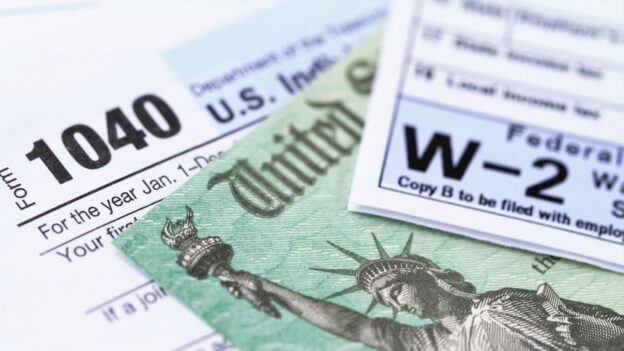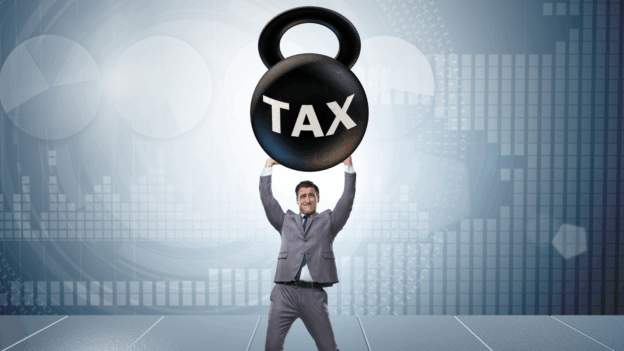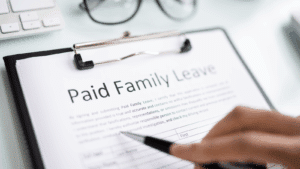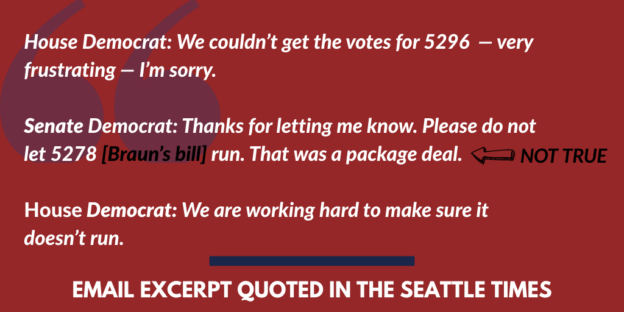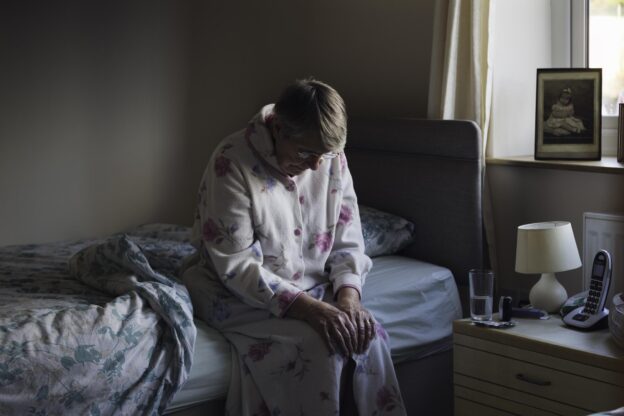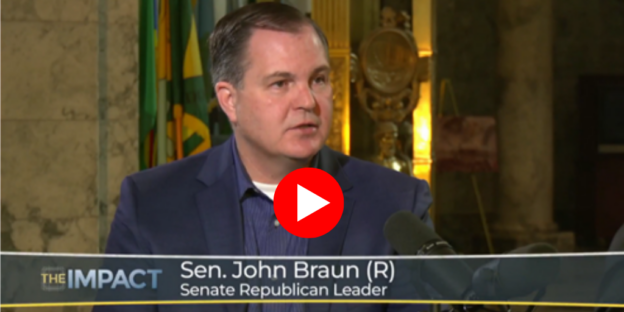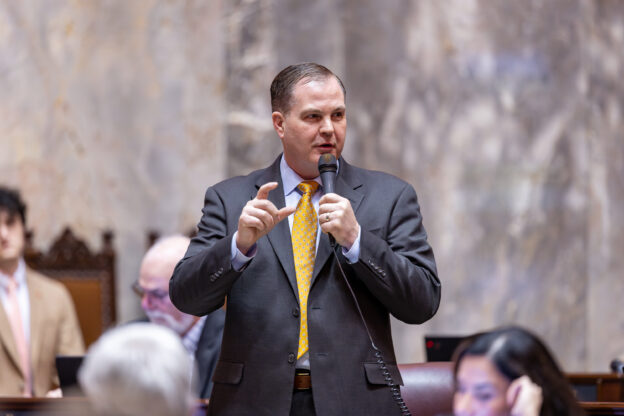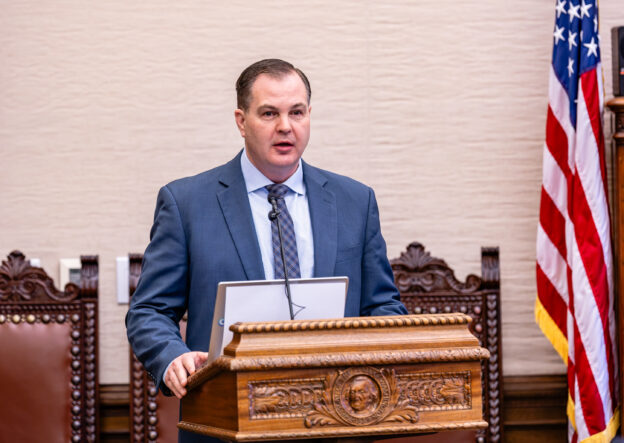LISTEN: Jobs Tax. Income Tax. Innovation Tax. Sen. John Braun Says: Enough to Democrat Tax Hikes
Dear Friends and Neighbors,
Affordability remains the number one concern for families across Washington, yet the policies championed by Democrats in Olympia continue to push our state further out of step with the rest of the country. Instead of easing pressures, their decisions are making Washington one of the least affordable places to live, work, and run a business.
Gas prices are falling nationwide, but Washington still ranks among the top three most expensive states in the country. Our restaurants face the highest operating costs in America while earning the lowest profit margins. Schools, nonprofits, and small businesses are still suffering from last year’s expansion of the sales tax.
As we approach the 2026 legislative session, people have every reason to be concerned. We are currently facing a $4 billion budget shortfall, but so far, we are hearing about proposals in the neighborhood of $11 billion in new or higher taxes.
Democratic leaders have already announced plans for a new tax on jobs—one that threatens our economy—and they have openly stated their intent to pass a state income tax this year.
When they tell you they plan to do this, believe them.
The reality about a state income tax
Washington’s constitution prohibits a graduated income tax. Any tax that applies only to individuals earning above a certain amount—while exempting everyone else—is unconstitutional. Despite this, Democrats appear determined to push one through anyway and send it to the state Supreme Court, hoping the court will reclassify it as an “excise tax.”
If that happens, the door opens for the very tax Washington voters have rejected 11 times at the ballot box.
Some voters mistakenly believe that adopting an income tax would mean eliminating our sales tax. That is not on the table. There is no proposal—none—to model our system after Oregon’s, which has an income tax but no sales tax.
Meanwhile, several of our largest employers have already stated publicly that they will leave Washington if an income tax is enacted. For decades, our Democratic governors touted the lack of an income tax as a key incentive for companies to locate here. Now, the majority party is prepared to give those same employers every reason to leave.
We have a fight ahead
Republicans will fight to protect you, your paycheck, and your job from any attempt to impose an income tax in Washington. But we cannot do it alone.
You can make a difference by contacting Democratic legislators and telling them to reject this tax. You can testify when the bill receives a hearing. And you can encourage your friends, neighbors, and family members to get involved as well.
I will keep you updated as this and other harmful proposals move through the Legislature. Your participation matters. Your voice matters.
Together, we can make sure our voices are heard.
Sincerely,
Senator John Braun
Can Washington afford it?

Before passing another law, we should ask one question: Can Washington afford it – not just in dollars, but
in safety, trust and opportunity?
Families across Washington are struggling to pay bills, find affordable housing, and feel safe in their
communities. Polls show “affordability” is the people’s top priority. Every decision in Olympia has a cost,
and it’s time we make affordability the test for every policy – financial, moral and generational.
As the minority, our job is to hold the majority accountable for the cost of their leadership and to offer
common-sense solutions Washington CAN afford.
This session we will connect every issue – from taxes to education to public safety – back to this simple,
people-centered truth:
Washington can’t afford policies that make life harder for the families we represent.
Myth vs fact:
MYTH: So much was cut from the budget last year that there isn’t anything left to cut.
FACT: The budget actually GREW by 8.2% last year. Democrats didn’t make cuts – they changed their funding priorities and programs such as one caring for drug-addicted babies were defunded.
MYTH: Last year’s deficit was $16 billion to $20 billion.
FACT: According to NONPARTISAN staff, the true deficit was $7.3 billion. Democrats made a policy choice to fund $4 billion in pay raises for state employees. They did NOT need to pass the largest tax increase in state history.
MYTH: We need more “revenue,” including an income tax.
FACT: The Democratic majority doesn’t have a revenue problem. It has a spending problem. Democrats need to reevaluate their priorities. Also, a graduated income tax, which taxes people at different rates based on their income, is unconstitutional in Washington and voters have rejected a state income tax 11 times. This hasn’t deterred Democrats from pushing for one and lobbying the state Supreme Court to consider it an excise tax instead.
By the numbers:
- The fastest growing part of the budget is lawsuit settlements worth billions of taxpayer dollars paid to victims and their families for Democratic mismanagement of state agencies and their policies that result in the injury and death of the most vulnerable.
- Washington remains dead last nationwide for the number of law enforcement officers per capita, despite the hiring of more than 300 new officers.
- Washington is one of the three most expensive states for gas prices due to $0.52/gal in Democratic carbon taxes
- The average household income in Washington is roughly half what is required to qualify for the median-priced home.
- Washington’s restaurants have to charge the highest prices in the nation, but have the lowest profit margins in the nation (1.5% compared to the 4% national average).
- Washington is rated 35th nationwide for business climate, down from 15th in 2022. The drop is due to the income tax on capital gains.
- Washington ranks as the 7th least affordable state for infant care, with care for one infant costing 17.8% of a family’s yearly income.
- Democratic policies will force an 18.6% electric rate hike over the next two years for many Western Washington consumers.
- Washington could see blackouts across the state due to Democrats’ policies that will remove 1292 megawatts of electricity from the grid in 2026.
Keep Washington Livable

- Reject policies that make life more expensive
- Advance solutions that reduce costs and reward hard work and innovation
- Protect jobs and keep job providers in Washington
Washington can’t afford higher taxes and fewer economic opportunities.
Keep Washington Safe

- Prioritize victims over offenders
- Expand and strengthen law enforcement
- Protect kids from overdoses, abuse and exploitation
Washington can’t afford policies that put our communities in danger.
Keep Washington’s Promise

- Improve public school academic attendance and performance
- Support stronger, healthier families
- Reinvest in foster care and childcare programs
Washington can’t afford to neglect its responsibility to our kids and to their future prosperity.
Local flooding and a state of emergency
The 20th Legislative District has been impacted by heavy rains this week, resulting in localized flooding and landslides. Randall is completely cut off and Highway 12 remains closed, officials do not know when roads will reopen.
The governor has declared a state of emergency, which includes the activation of 300 National Guardsmen to assist with response (pending approval from the federal government.)
Today, at noon, he held a news conference to update everyone on the status of the response. Watch the press conference.
According to the governor and emergency management officials, the situation is unpredictable. They do not know exactly what will happen when the second wave of water reaches the lower areas of the rivers. They expect rivers to crest around 10 p.m.
This is affecting areas on both sides of the mountains and up and down the entire state.
If you have been advised to evacuate, please do so. Do not drive through standing water. Stay off of the dikes – they could fail and cause serious injury. What we will see happen this evening will test the work done after the work done in 2021 on our levies. Do not assume that because you made it through previous floods okay that you won’t experience dangerous conditions now.
The next 12 hours will be critical and will place a lot of demands on our emergency services. You can help by following guidelines and staying away from evacuated areas and flood waters.
I am concerned for all who are impacted and urge everyone to continue to take necessary precautions. As always, I hear stories of our local emergency personnel, government officials, and community members who have stepped up to care for their neighbors. I am grateful to serve a community that is defined a strong sense of care.
My latest column: Soft-on-crime legislators have blood on their hands, local prosecutor says
On the surface, a pair of murders in our state nearly two months ago don’t have anything in common except for each occurring in mid-October and resulting in the arrest of a young man.
One occurred in north Seattle, the other in Spokane — far from our corner of the state. Yet it’s a local prosecutor, Lewis County’s Jonathan Meyer, who sees two common denominators.
Not only are the suspected murderers both former residents of Green Hill School, the county’s state-run juvenile facility, but he ties the timing of the crimes to this year’s passage of House Bill 1815.
It’s among the latest additions to a very long list of soft-on-crime laws supported by Democrats.









